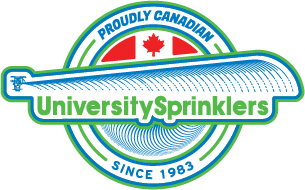Most people living (and breathing in the smoky air!) in the Lower Mainland are aware that Stage Two Watering Restrictions are now in effect. This precautionary measure has been taken by Metro Vancouver as a result of lower than usual precipitation experienced this spring, and its impact on our reservoirs. Not surprisingly, our phones in the office are ringing off the hook, with questions regarding timer operations, and people seeking clarification on the restrictions, so we hope with this blog posting we can answer some of those questions for you.
What Stage Two Restrictions Look Like:
- Lawn sprinkling will be restricted to one morning a week only. See the updated schedule here.
- Municipal parks, cemetery lawns, ornamental lawns belonging to municipal facilities, and grassed boulevards will not be exempt.
- Hosing of outdoor surfaces (e.g. driveways, sidewalks, roofs) will not be allowed unless required to avoid public health and safety concerns or to prepare a surface for painting/sealing or similar treatment, and must be done using a spring-loaded shutoff nozzle.
- Pressure washing is equivalent to hosing of an outdoor surface, and will not be permitted except to prepare a surface for painting, sealing or similar treatment. Pressure washing for the purpose of aesthetic cleaning will not be permitted. This will apply to both private and commercial pressure washing.
- Ornamental fountains must be shut down. This includes residential, commercial, institutional and government fountains.
- Only water play parks with user-activated switches will be permitted to operate.
- Exemptions:
- Golf courses may water greens and tee areas normally; fairways may only be watered once weekly. Where applicable, signage indicating the use of non-GVWD water will be encouraged.
- Sports playing fields, school yards and sand-based playing fields may be watered at minimum levels required to maintain areas in useable condition.
- Artificial turf requiring wetting and outdoor tracks requiring hosing for health or safety reasons.
- Newly-planted lawns will be allowed to be watered outside of restricted times, but will be required to obtain a municipal permit to be displayed on the lawn.
- Watering of flower and vegetable gardens, decorative planters, shrubs and trees and turf at commercial turf farms will be allowed.
- Washing of cars or boats will be permitted, but prudent use of water will be encouraged. Washing must be done using a spring-loaded shutoff nozzle.
How You Can Do Your Part:
Reset your timer so that your lawns are only being watered during your scheduled weekly time:
RESIDENTIAL:
- Even-numbered addresses may sprinkle lawns only Monday mornings 4 a.m. – 9 a.m.
- Odd-numbered addresses may sprinkle lawns only Thursday mornings 4 a.m. – 9 a.m.
NON-RESIDENTIAL:
- Even-numbered addresses may sprinkle lawns only Wednesday mornings 1 a.m. – 6 a.m.
- Odd-numbered addresses may sprinkle lawns only Tuesday mornings 1 a.m. – 6 a.m.
You can find instructions to reset your timer via our Timer Manual Page. Also, here are three videos from Rain Bird, explaining how to program one of their more common timers, the ESP-Me Series Sprinkler Timer:
If you can differentiate your lawn from your garden when you irrigate:
While almost every system has more than one zone, some systems are designed with different zones for grass and gardens – and sometimes even different zones for hanging baskets. These systems are generally more costly and allow independent timing (both different durations , start times, and days) between the various zones. If you have such a system, you can alter the timing so that grass zones water once per week on your allotted days, and garden zones water as before. It should be noted that the Stage Two Water Restrictions still allow for unrestricted watering of garden beds. Lawns always bounce back in the spring, even if they don’t get watered at all. Gardens, however, can suffer irreparable damage during droughts. Furthermore, some people rely on their gardens to put fruit and vegetables on their tables. City officials recognize that restricting the irrigation of garden beds causes increased hardship, and therefore treat the sprinkling of lawns differently from the sprinkling of gardens. If your system does not have separate zones for gardens and grass areas, they can be altered for separation to allow for the above independent control – give our office a call if you are interested in the cost of this investment / upgrade.
Consider irrigating only your gardens:
When and how to irrigate your lawn and garden is a personal choice. You may chose, during this particularly hot and dry summer, to stop irrigating your lawn altogether, knowing your lawn will not suffer too harshly in the long run. Your garden will likely suffer more during a drought than your lawn will, so you are better off forgoing watering your lawn to keep your gardens irrigated.
When did we last reach Stage Two Watering Restrictions?
Notably, since 1993 we have only once advanced to Stage Two of Metro’s water conservation plan. That was in the late summer of 2003. In the Lower Mainland, we have not moved beyond Stage Two since the plan was put in place in 1993. You can read more about Metro Vancouver’s Water Shortage Response Plan in our previous blog posting here.
What else can you do?
There are other ways to conserve water around the home. Here are some tips from Metro Vancouver on how you can use less both inside and outside.
Please call our office if we can be of further assistance. However, please be patient with us during this exceptionally busy time. We are getting lots of calls from clients needing help, and we are responding as fast as we can, with all hands on deck!
